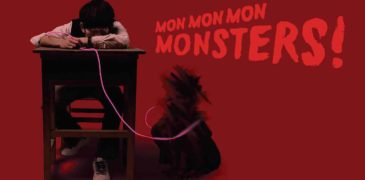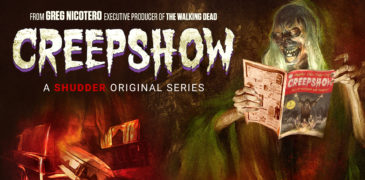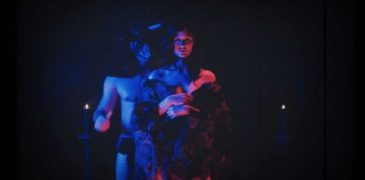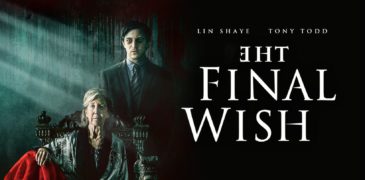
Shudder, as a platform for exclusive releases, has been an enjoyable and interesting experience. Being able to curate directly for fans of the genre has allowed an impressive range of movies to get much broader exposure than they may have while getting lost in the mix on a wider service such as Netflix or Hulu. Mosquito State is one such film. Setting out with incredible ambition and one killer premise, I found the promise of what could be hampered by curious choices in execution. The movie is the brainchild of Polish writer/director Filip Jan Rymsza. While Rymsza has numerous producer credits to his name, his last directorial effort was 2007’s surrealist drama Dustclouds.
To grasp at what Mosquito State is trying to deal with it is important to place it within the context of its historical setting: America, the year 2007, “The Big Apple” New York. Wall Street is on the precipice facing a severe financial crisis. The film is quick to make this fact all too clear for viewers, opening on a swanky high-life party where the guests crack jokes about whether the democratic nominee for president will be Hillary Clinton or Barack Obama and marvel at the newly released Apple iPhone. These moments unfortunately feel just a bit too forced and land with all the impact of that “hey, don’t you remember…” style of nostalgia. Amid this revelry, we meet our protagonist: Richard Boca (Beau Knapp). Richard is an exceedingly awkward data analyst whose computer modelling has allowed his firm to game Wall Street for all its worth, squeezing out every last drop that they can.
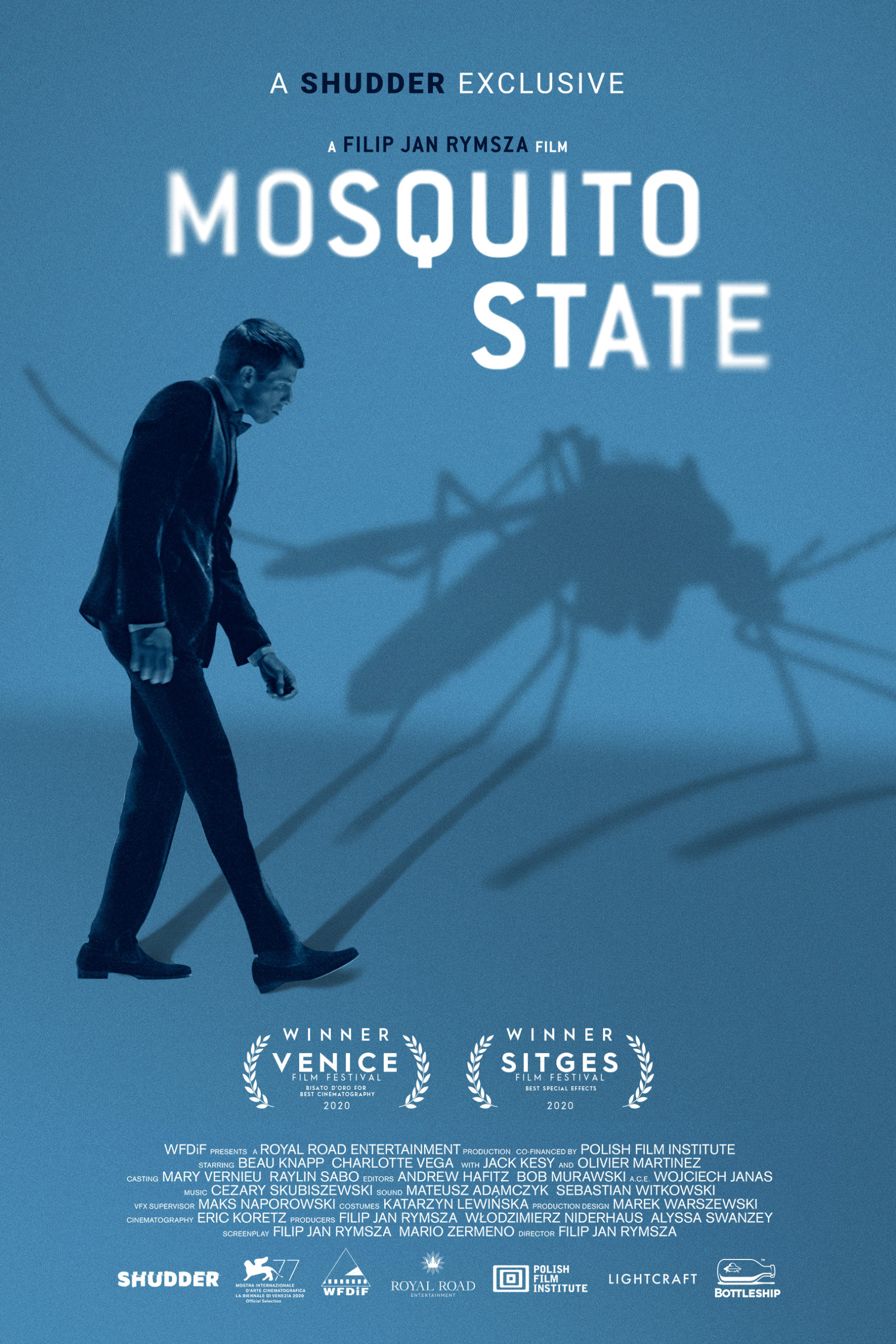
And there is the metaphor: bloodsuckers. The opening credits ride on disturbingly close-up shots of a mosquito laying eggs and the larva hatching and maturing. The same way they greedily consume the blood of others to survive, so too do these stock traders by exploiting their own victims. Seems like a perfectly solid little comparison and one that’s primed for plenty of dread if you have a phobia with insects as I do. Unfortunately, the film rarely seems to take this metaphor any further beyond its surface level. At its core, this is where the film might lose a lot of people. If you are not repulsed by all things creepy and crawly, then there are few frights to be had and you’re instead treading the path of a slow-burn more psychological horror that has been well popularized with the formula for many of A24’s smash hits. Yet, where films like Hereditary or The Lighthouse build up to utterly explosive final acts, Mosquito State leans just a bit further into more arthouse sensibilities instead.
At the party, we are introduced to some of the other key players; though truthfully the film is Richard’s story from start to finish. We meet a rival at his firm, the carefree CEO of their company and by a mutual connection, Richard gets introduced to the quite charming Lena (Charlotte Vega). Immediately there is chemistry between the two as each seems ill-fit among the more carefree nigh hedonistic attitude held by the rest of the room. The two return to his swank penthouse overlooking Central Park, plunging into discussions about their past, their dreams for the future, and other matters. Some praise definitely needs to be given for the set design as Richard’s apartment makes for an amazing locale that is used well throughout the story. It is at one level cold and clinically bare of much decoration, as if a mirror of his own mannerisms. Yet, by the size and gorgeous view, it becomes clear that though the film seems to try and suggest Richard is somehow better than his co-workers, he has benefited just the same through playing the markets. Later, the apartment becomes cast in muted blues or sinister reds, and the lighting goes a long way to mix with the hollow area to perfectly punctuate the mood in these moments.
There are a few takeaways from this early scene that sets the course for the rest of the film. During their many discussions, Lena brings up an idea that Richard finds fascinating: the concept that a system might be unsustainable and eventually work towards its own demise. It is interesting, I suppose, but Richard’s eagerness at the topic again shoves the central theme way too far in your face. Despite their lofty conversations, however, the night ends in disaster. A bit of flirtation over wine tasting goes awry as Richard’s social awkwardness takes center stage, consequently prompting her to head on home and leaving the analyst by himself with the lone mosquito hitching a ride on his neck back from the party.
Richard as a character deserves some deeper focus as well. Since it is almost exclusively his story that role in the film has to carry a lot of weight. Beau Knapp is a great actor and I’ve seen him have amazing moments in other works. It fell painfully flat for me here. Richard is supposed to be awkward, I get it. Yet, his every action seems so overly exaggerated that it continually distracts and lessens the emotional impact some moments ought to have. Richard seems to bounce between the worst of an energized Crispin Glover and, during moments of outburst, Vampire’s Kiss era Nicolas Cage. I don’t think a film particularly needs to have a likable protagonist to be a good experience. However, the problem with Richard is that he is really no different from the other “bloodsuckers” that he works with and yet at times the film tries to suggest that he is somehow better or noble in some way. Yet, his every action contradicts these moments in such a way that I found myself overly frustrated with him for the duration of the story.
From this point forward we follow two developing narratives. First, at his job, Richard begins to notice strange behavior in his predictive software that suggests that the more they game the system the more things will begin to spike downward and fall apart. Second, the mosquito feeds upon Richard and he finds himself fascinated with it and begins to take steps to help it lay eggs and cultivate a swarm. As the stress of one escalates, with his coworkers seemingly uninterested in the “sky is falling” style doom that Richard is trying to warn them about, it seems to drive the deterioration of his own mental state and his obsession with the mosquito.
That sounds like it is going to be some complex and enjoyable psychological horror, but the film, unfortunately, doesn’t hit that mark too often. It never punches up to any of the obvious low-hanging Kafkaesque symbolism that could be drawn upon. Instead, we get a lot of this awkward guy hanging out in his apartment as the tv plays with more reminders that we are in the year 2007. Richard ominously channel surfs between Obama and Hillary at a debate to clips of Donald Trump hosting The Apprentice. These moments are truncated with smash cuts to very close-up shots of the mosquito laying eggs, the larva hatching, and other elements that left my skin crawling but your own mileage may vary. He begins to openly allow the mosquitos to feed upon him willingly trying to cultivate them as a system, not unlike the modeling software he manages.
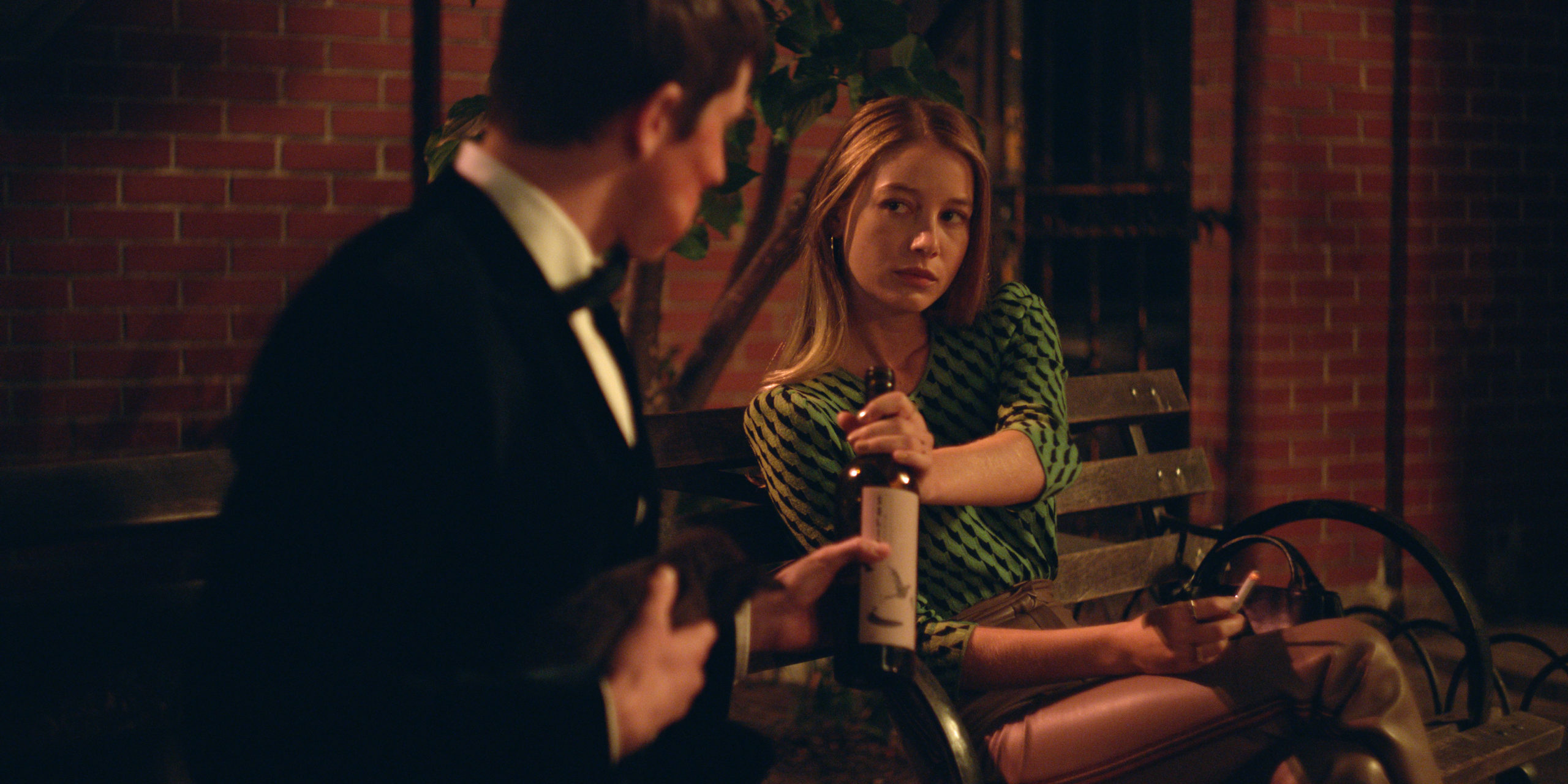
As these feedings intensify, he begins to develop tumorous-looking welts all over his face. This is probably a good time to discuss the special effects of the film. I’ll openly admit that as a reviewer with a lifelong fear of insects, I wasn’t brave enough to do the absolutely thorough level of research that I would have liked to but the large growths that form on Richard’s face don’t seem to track to anything based in reality that I could uncover. At times, the makeup for the effect feels just a bit too obvious. This is where one might expect that angle to push further into some Cronenberg levels of body horror but again it was something that I found potentially intriguing yet not really developed to any greater purpose.
There is also, regrettably, heinously bad CGI present in the film. Our very first opening shot is of a mosquito in the sewer flying up through the streets and into the window where the party is taking place. This entire shot is done in painfully awkward graphics that bring to mind early Playstation 2 cutscenes. It is moments like this that I think of when I refer to curious choices. The shot doesn’t particularly add anything in either narrative or mood to the story and something just as fitting could have likely been done in a more practical manner. I’m baffled by its presence in the film because it seems grossly at odds with the more arthouse sensibilities that rule the day overall. Later, when the mosquitoes reach a massive horde, they’re depicted in CG which tends to range in quality. This has a lot to do, I think, with the lighting. At times, they blended quite well and came across as completely believable. In other moments, they really stick out like a sore thumb.
Where the film is quite successful, however, is the sound design. Nothing is perhaps more insidious than the whining hum of a mosquito. Multiply that by a thousand and it really ratchets up the level of discomfort. The movie manages to ply this fact for all its worth contradicting its own reliance on CG when the proper atmosphere can easily build all the tension one might need. Additionally, the score composed by Cezary Skubiszewski is quite serviceable. It manages to mostly blend into the background and stay atmospheric, but there are several key scenes where the music really hits hard and meshes so well with the moment that it enhances the mood considerably. During the middle of the film, there is a particularly well-played scene where Richard winds up staying late at the office and starts to go a bit rogue with the implementation of his software. His corporate meddling is truncated by a banger of a track that could feel right at home in the more electronica-leaning works of Nine Inch Nails.
I’ll leave the ending for you to discover on your own, but it exaggerates most of my hang-ups about the movie. After spending the entire film calling Lena and leaving creepy stalker-like messages we get some rushed backstory about the CEO having a thing with her and in one shallow moment of telling her “don’t let him control you” like he is some knight in shining armor she is magically captivated with Richard once more. It rings way too hollow and everything that follows never seems to add up quite right to me. Maybe the point is that the resolution Richard arrives at was inevitable, not unlike the looming economic crisis, but to me, the film never earned that moment because it felt like it kept its symbolism far too light to nail the kind of concluding thunderous A24 style emotional drop.
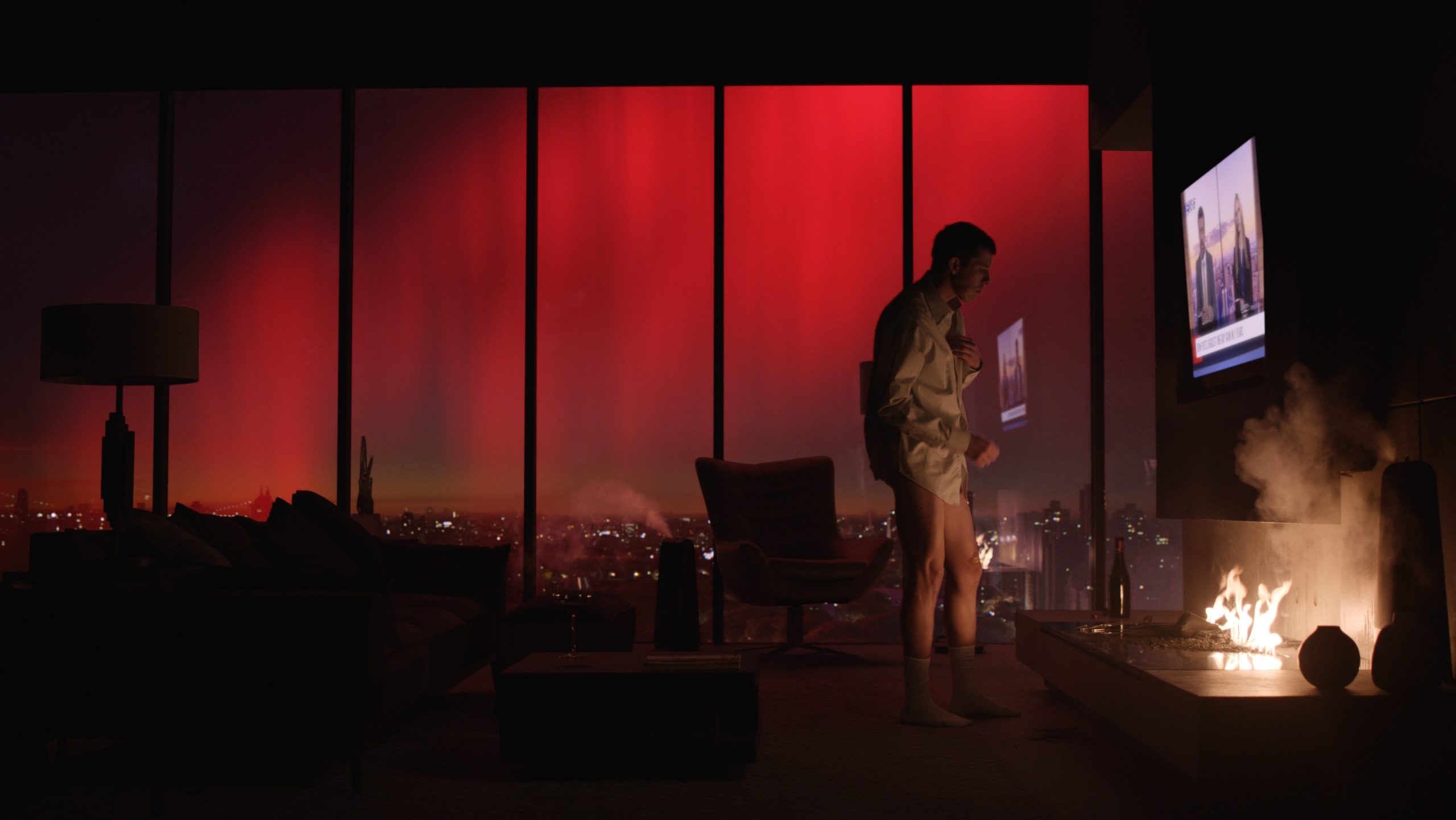
For all its faults, this is a film with moments of greatness. A sea of dull scenes with Richard simply sitting about with the tv playing in the background will be contrasted with later moodier segments like a tight tracking shot from the ground of him dragging a chair up to the table for a confrontation with the CEO or a near Lynchian dream sequence. I think it is these well-executed scenes that made the film so frustrating for me as an experience. When it is good, the film is really quite impressive. However, these are spread out too few and far between a lot of arthouse horror stuff that never hits the right tone to sail on that aesthetic and will likely come across as a snoozefest if you are already averse to that particular subgenre.
I don’t think it is particularly the fault of any one person. Taken in a vacuum, I think everyone involved put in some good work. Yet, there is something about the final composition of it all that just did not work for me. I think you could take the best moments, trim them out, add a bit of light narrative padding for context and probably make one hell of an impressive short film on the same theme. Unfortunately, at roughly one hundred minutes, the film is a curious mix of good and bad that never quite gels together beyond its surface-level metaphors.
And yet, I cannot say that I feel like my time was wasted. I am glad that Shudder takes the chance on releasing pictures like this and hope they will continue to cast their net wide. There is something worthwhile in the message the film wants to deliver and to be such a huge and impactful event, I don’t think I have seen many horror films attempt to address the Wall Street crash of the late 2000s. If you are repulsed by all things bug-related you will definitely get a lot more in frights out of the film. I think this is the kind of movie that some people will see and be inspired and pushed along in their own creativity. The moments that do land right feel so good that I would gladly check out whatever comes next from Rymsza. In the end, it may simply be a matter of my own sensibilities not meshing well with the vision of the film so if anything about the movie intrigues you at all I think it is at least worth checking out for yourself.

More from Shudder
Explore the rural roots, occult creeds and cultural lore that continue to shape international cinema. The folk horror genre is as diverse as the countries, cultures, and eras in which… Coming-of-age stories with horror backdrops typically have the upper hand when it comes to bringing a unique vision due to the genre’s ability to tackle topics in ways that other… Shu-wei is the constant target of savage bullying by a group of charismatic fellow students. A twist of fate has him spending the night with them doing community service at… The Creepshow anthology series came back with a bang for Season 2, with fresh explorations of the modern age of technology and current socio-political landscapes, along with the well-known and… Despite the belief that this humble viewer may have been drawn in by such a provocative title, Porno, (also cringingly known as Fangoria’s Porno) premise was enough to pique my interest…. Having just landed on Shudder UK, The Final Wish (2018) is director Timothy Woodward Jr’s third film and boasts a story from Jeffery Reddick, writer of the first two Final…Woodlands Dark and Days Bewitched (2021) Documentary Review
Hellbender (2021) Film Review – A Curious Blend of Teenage Angst and Folk Horror
Giddens Ko and Mon Mon Mon Monsters (2017): The Horror Comedy That Became a Hate Letter
Creepshow Season 2 (2021): Top 3 Episodes Ranked
Porno (2020) Review: Not Actually Porno…
The Final Wish (2018) Film Review – When You Wish Upon A Star
Dustin is a potentially overqualified office worker who has a lifelong love and fascination with Japan and all things Horror. With a bachelor’s in English Literature and a master’s in Library Science, he devotes way too much time to researching and thinking critically about the media he enjoys. When not celebrating trashy horror films, anime, and idol music, he can be found raving about all things genre cinema as a co-host on Genre Exposure: A Film Podcast or indulging a passion for storytelling through tabletop roleplaying games.


